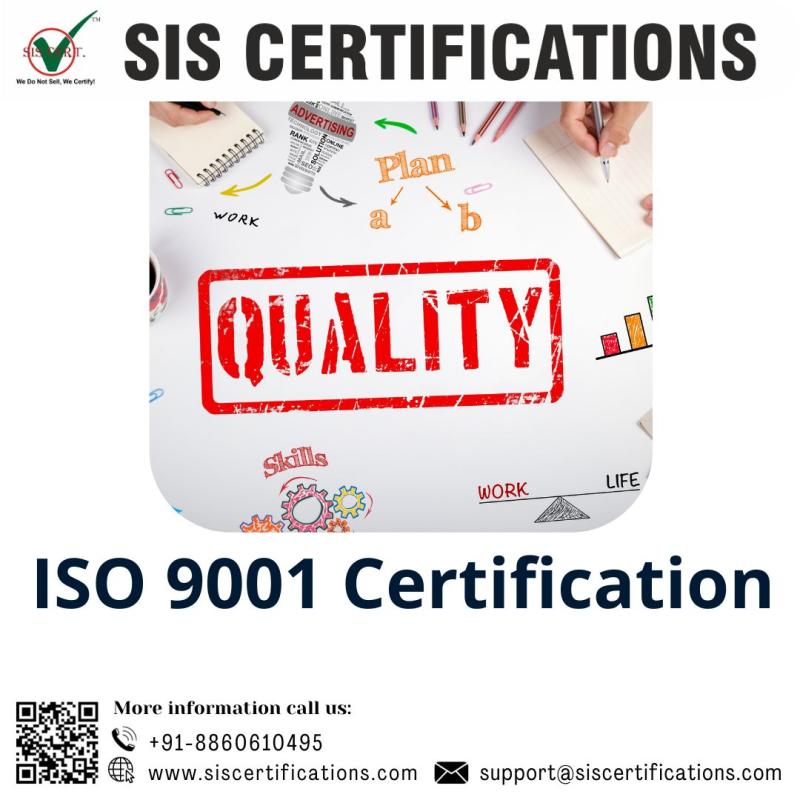ISO Training ISO 9001:2015: A Pathway to Excellence in Quality Management

In today’s competitive business environment, maintaining high
standards of quality is crucial for success. ISO 9001:2015, an internationally
recognized standard for Quality Management Systems (QMS), offers organizations
a framework to consistently deliver products and services that meet customer
and regulatory requirements. Achieving ISO 9001 certification is not just about
improving operations; it's about building trust and credibility in the
marketplace.
However, gaining ISO 9001:2015 certification requires
thorough preparation and understanding of the standard's principles. This is
where ISO 9001:2015 training
becomes essential. In this blog, we’ll explore the importance of ISO 9001:2015
training, what it entails, and how it can benefit your organization.
Why ISO 9001:2015
Training Is Important
ISO 9001:2015 training is designed to equip professionals and
organizations with the knowledge needed to implement and maintain a robust
quality management system. The training helps ensure that the entire
organization understands the requirements of the standard, how to apply it
effectively, and the long-term benefits of continuous improvement.
Some key reasons why
ISO 9001:2015 training is essential include:
Comprehensive
Understanding of Quality Management Principles: ISO 9001:2015 introduces several
concepts such as risk-based thinking, leadership engagement, and process
approach. Training ensures that teams can understand and apply these principles
effectively in their daily operations.
Smooth Implementation
of ISO 9001 Requirements: ISO 9001:2015 training provides clear guidance on how to implement the
standard in your organization. From documentation to internal audits, trained
employees will be able to handle the process efficiently, reducing the time and
effort required for successful certification.
Improved Internal
Auditing Capabilities: A key part of ISO 9001
compliance is conducting internal audits to ensure continuous
improvement. With the right training, employees will be better equipped to
identify non-conformities and areas of improvement, contributing to the overall
effectiveness of your QMS.
Enhanced Customer
Satisfaction: By
effectively implementing ISO 9001:2015, organizations can improve product and
service quality, leading to increased customer satisfaction and loyalty.
What Does ISO 9001:2015
Training Cover?
ISO 9001:2015 training programs are typically tailored to
meet different organizational needs, whether it’s for leadership, middle
management, or operational staff. The training usually covers:
Overview of ISO
9001:2015: This
section provides an understanding of the ISO 9001 framework, including its
structure, key terms, and the significance of a process-oriented approach to
quality management.
Core Principles of ISO
9001:2015: Training
will delve into the seven key principles of quality management, such as
customer focus, leadership, and continual improvement.
Risk-Based Thinking: One of the newer aspects of ISO
9001:2015 is its emphasis on risk-based thinking. This module focuses on
identifying, evaluating, and mitigating risks to ensure quality consistency.
Documentation and
Process Management:
Training covers how to document processes, procedures, and policies that align
with ISO 9001:2015 standards. This includes guidelines on maintaining accurate
records for audits.
Internal Audits and
Continuous Improvement: Participants will learn how to conduct effective internal audits and
drive continuous improvement using key performance indicators (KPIs).
Certification Process: A clear roadmap is provided for how
to prepare for ISO 9001:2015 certification, including key steps such as gap
analysis, management reviews, and external audits.
Types of ISO 9001:2015
Training
ISO 9001:2015 training is offered in various formats to suit
different learning styles and organizational needs. Common types of training
include:
Online Courses: Ideal for professionals who need
flexibility. Online ISO 9001:2015 courses offer self-paced learning and remote
access to course materials.
In-Person Workshops: These are typically more interactive
and provide hands-on experience. They are ideal for teams within an
organization looking for more personalized guidance.
Internal Auditor
Training: This
specialized training focuses on preparing individuals to conduct internal
audits based on ISO 9001:2015 requirements.
Lead Auditor Training: For those looking to advance their
careers in quality management, lead auditor training provides in-depth
knowledge on conducting external audits and supporting organizations in their
certification journey.
Benefits of ISO
9001:2015 Training for Organizations
Investing in ISO 9001:2015 training provides numerous
benefits for organizations of all sizes and industries. Some of the top
benefits include:
Improved Operational
Efficiency: ISO 9001:2015
training ensures
that employees understand how to streamline processes and eliminate
inefficiencies, leading to cost savings and optimized resource utilization.
Better Risk Management: With a strong focus on risk-based
thinking, trained professionals can better identify potential risks, allowing
the organization to be proactive in mitigating them.
Increased Employee
Engagement: Training
empowers employees to take ownership of their roles in quality management,
boosting morale and engagement levels. This is especially critical for
maintaining consistent quality.
Stronger Market
Competitiveness: ISO
9001:2015 certification is recognized worldwide and demonstrates your
commitment to quality. This can open up new business opportunities and markets,
especially in industries where certification is a requirement.
Conclusion
ISO 9001:2015 training is a valuable investment for any
organization looking to achieve excellence in quality management. Whether you
are aiming for certification or seeking to improve your internal processes, a
well-trained workforce is key to success. By embracing the principles of ISO
9001 and ensuring your team is properly trained, you can not only achieve
compliance but also drive continuous improvement, reduce risks, and deliver
better customer satisfaction.
For organizations looking to start their ISO 9001:2015 journey, the right training can be the first step toward building a culture of quality and setting the foundation for long-term success.
Post Your Ad Here
Comments